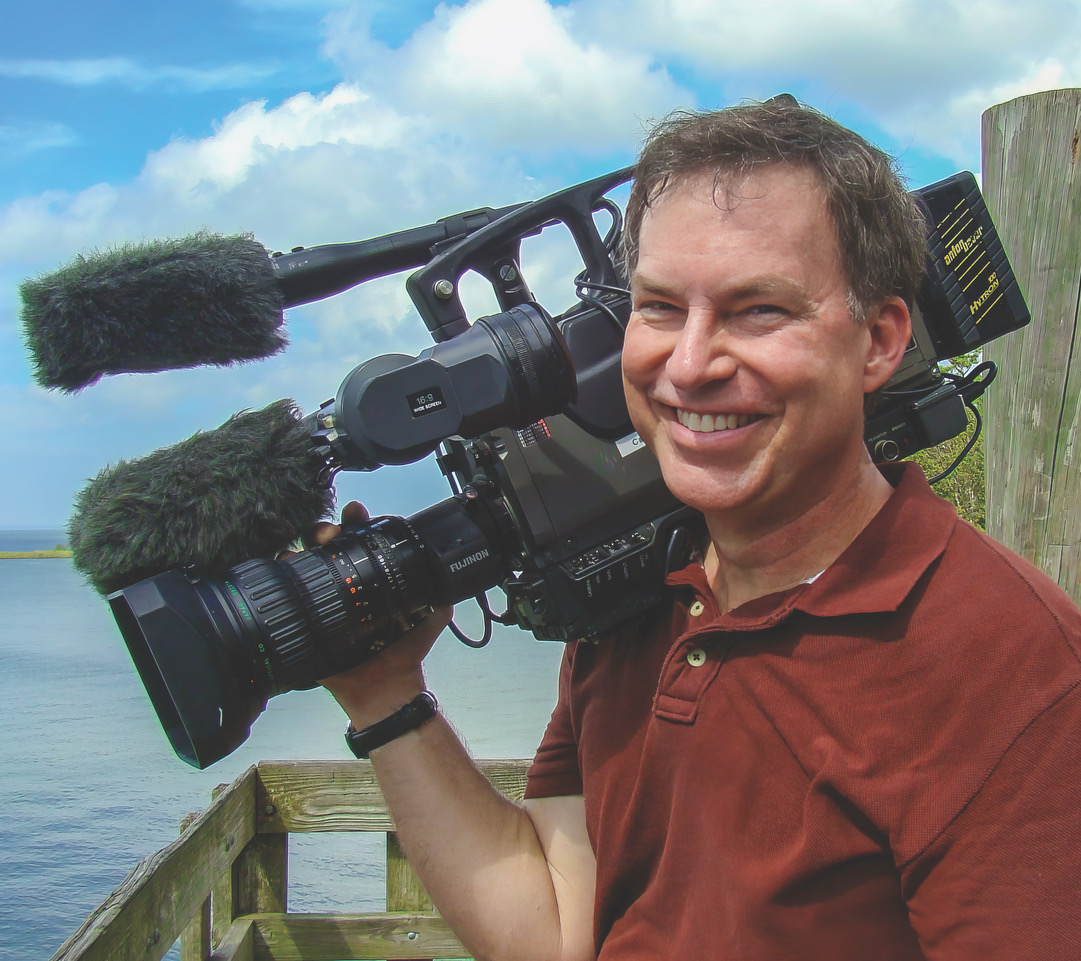In the late 1980’s, Ron was a video producer at MD Anderson Cancer Center. He asked if he could do a documentary about the hospital’s summer camp for kids with cancer, but he was told there was no budget available for the project. So, he took a week of vacation, bought a couple boxes of beta tapes, and got permission to take one of the hospital’s Ikegami cameras and spend a week videotaping the kids at camp. For the next year, he spent every weekend on his own time writing and editing the program. When it was completed, the thirty-minute documentary aired nationally on PBS (following a 90-minute episode of Frontline). The program went on to win a Suncoast Regional Emmy, Ron’s very first one.
For the next six years, Ron returned to the summer camp for a week every spring as a volunteer counselor. It was a prophetic experience, because just a few years later, Ron began his own twenty-year battle with various cancers, including colorectal adenocarcinoma and Leiomyosarcoma.
Ron began his TV career after celebrating his 20th birthday. He and his friend John Ahrens both got jobs at Houston Public Television as Master Control Switchers. Ron would walk across the parking lot from his dormitory and sign the station on, working 5am to 9am. He often wondered about the logic of station management to literally pluck a 20-year-old off the street and give him the responsibility of signing on the station every morning.
After graduation, Ron found himself WAY over his head as a news editor at KPRC-TV. Scared and intimidated, he was befriended by two people, Jerry Hattan and Charlie Hadlock, who introduced him to the incredible world of the National Press Photographers Association. What a revelation, to be able to plagiarize the ideas and techniques of many of the country’s best photojournalists. Ron took the NPPA philosophy as gospel, even though he really wasn’t any good.
But after attending five NPPA workshops in Norman Oklahoma, and under the guidance and encouragement of Jeff Weiss, KUHT’s crew chief, he got a few years of experience as a photojournalist/editor and began to suck much less.
After ten years in the business, Ron finally made the transition to writer and editor. This was a good move for him, because he could hide his sad weaknesses as a photographer within his fairly good editing skills.
Then came an opportunity with the Texas Parks and Wildlife Television Series, which airs state-wide on PBS stations. Now, he was a true one-man-band, just like his NPPA heroes.
Ron travelled across the state, producing/shooting/editing/writing/logging eight-to-ten-minute documentary-style segments for the show. And he evangelized the NPPA philosophy of allowing the characters to tell the story, using sound and music to create people-oriented stories about the unsung folks working in the world of conservation and the environment.


